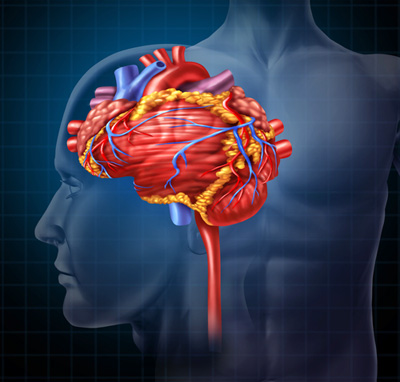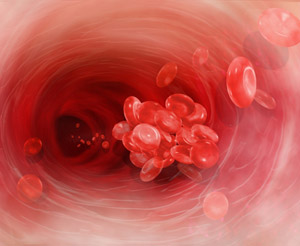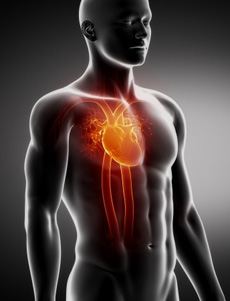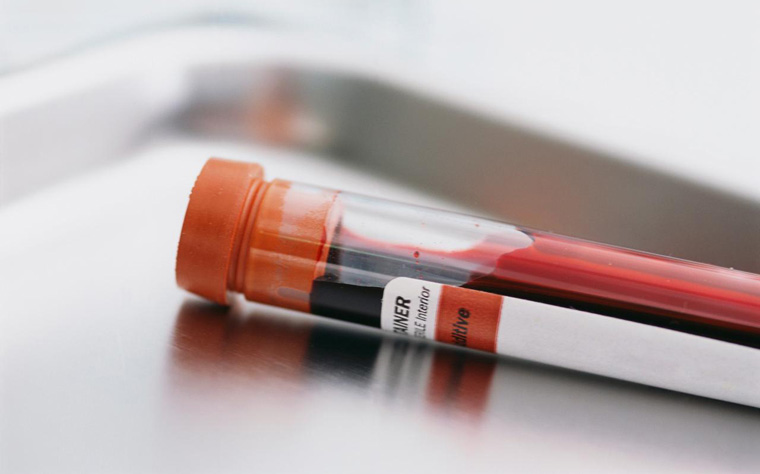Normalization of testosterone level is associated with reduced risk of heart attack, stroke and mortality in men
- Published in Testosterone Replacement Therapy

The effect of testosterone replacement therapy on cardiovascular outcomes such as heart attack and stroke are controversial and have been generating heated discussions among clinicians as well as researchers. This, coupled with biased media sensationalism blowing up the supposed “dangers” of testosterone therapy has created great confusion among suffering men, who could gain tremendous health benefits from testosterone therapy.[1]
Here I report the results of a new study that examined the relationship between normalization of total testosterone levels with testosterone therapy and cardiovascular events as well as all-cause mortality, in patients without a previous history of heart attack and stroke.[2] This notable study was published in the European Heart Journal on August 6th, 2015.
Long-term testosterone treatment with different testosterone preparations - provocative results on diagnosis and adherence
- Published in Testosterone Replacement Therapy

Due to lack of consistent clear-cut guidelines for diagnosis and treatment of testosterone deficiency, there is a lot of confusion among both health professionals and suffering men. The multiple different testosterone preparations available further add to the complexity of testosterone treatment.
This article presents the intriguing results from a notable study that analyzed effects of testosterone therapy with seven different testosterone preparations in symptomatic men who had previously been denied treatment because of “normal” baseline testosterone levels.[1]
The results are quite provocative and highlight several important practical issues relating to diagnosis and treatment of hypogonadism…
Risk of Blood Clots in Men Receiving Testosterone Therapy?
- Published in Testosterone Replacement Therapy

Venous thromboembolism is a blood clot that forms in a vein deep inside a part of the body; it mainly affects the large veins in the lower leg and thigh.
Blood clot formation (venous thromboembolism) has been suggested to be one main risk with testosterone replacement therapy. In 2014, both the US Food and Drug Administration (FDA) [1] and Health Canada [2] implemented a requirement for manufacturers to add a warning about the potential risks of venous thromboembolism and deep vein thrombosis to the label of all testosterone products.
However, until recently there were no comparative studies examining an association between testosterone replacement therapy and venous thromboembolism. Here we report the results of a recent case-control study - published July 20th 2015 - that specifically examined the risk of venous thromboembolism associated with testosterone therapy in middle-aged and older men.[3]
Testosterone Treatment and Hormonophobia – Cardiovascular risk, the Media, and the Authorities
- Published in Testosterone Replacement Therapy

One of the most controversial and debated issue related to testosterone replacement therapy is its effects on cardiovascular risk and related clinical outcomes.
In this video presentation, Dr. Morgentaler clarifies misperceptions of testosterone replacement therapy and cardiovascular disease risk, which have created unwarranted concerns and distorted public discussion of testosterone replacement therapy as a medical treatment.
Video Summary of Testosterone Replacement Therapy and Cardiovascular Risk
- Published in Testosterone Replacement Therapy

One of the most controversial and debated issue related to testosterone replacement therapy is its effects on cardiovascular risk and related clinical outcomes.
In the February 2015 issue of Mayo Clinic Proceedings a comprehensive medical review paper, written by Dr. Abraham Morgentaler and his coauthors of the Androgen Study Group – www.AndrogenStudyGroup.org - was published.[1]
The aim of the review was to analyze all available studies on testosterone replacement therapy and cardiovascular effects, and to clarify the grossly misleading conclusions from two recent studies that caused a tremendous media scare.
In this 8 minute video, Dr. Morgentaler presents the key results from this comprehensive analysis…
Is Testosterone Replacement Therapy a Lifelong Treatment?
- Published in Testosterone Replacement Therapy

A common question among hypogonadal men is how long they should stay on testosterone therapy.
The answer is - it depends on what is causing a man’s testosterone deficiency..
Health Consequences of Subclinical Testosterone Deficiency - riskier than previously thought
- Published in Testosterone - Men

In discussions about diagnosis and health consequences of hypogonadism, aka testosterone deficiency, the prime focus is given to testosterone levels and signs/symptoms.[1-3] However, emerging research has identified a less clinically evident gonadal dysfunction called “subclinical” hypogonadism (or “compensated” hypogonadism).[4, 5]
Subclinical hypogonadism is characterized by normal testosterone levels in the presence of elevated LH level. As testosterone levels are not markedly reduced in subclinical hypogonadism, intuitively one may think it does not confer negative health consequences.
However, a recent study by Corona et al., which specifically was conducted to investigate the potential health ramifications of subclinical hypogonadism, shows that it should not be neglected. Surprisingly, subclinical hypogonadism is associated with an almost 10-fold increased risk of cardiovascular mortality, which is comparable to that for overt hypogonadism! [6]
Testosterone Therapy and Cardiovascular Risk - Advances and Controversies
- Published in Testosterone Replacement Therapy

One of the most debated issues related to testosterone therapy is its effects on cardiovascular risk and clinical events, like for example heart attack.
January 27th, 2015 a comprehensive medical review paper was published, addressing the controversial topic of testosterone therapy and cardiovascular risk.[65] It was written by the Androgen Study Group academicians and published in Mayo Clinic Proceedings.
Here I summarizes key conclusions from this milestone medical review.
Testosterone, Mortality and Longevity
- Published in Testosterone Replacement Therapy

Population studies show that men with low or low-normal testosterone levels are at an increased risk of mortality compared to those with higher levels, and that cardiovascular disease accounts for the greater proportion of deaths in men with low testosterone.[1]
Here I summarize a medical review paper which addressed the following two questions: [1]
1. Is testosterone deficiency directly involved in the pathogenesis of these conditions or is it merely a biomarker of ill health and the severity of underlying disease processes?
2. Does testosterone replacement therapy retard disease progression and ultimately enhance the clinical prognosis and survival?
Testing for testosterone deficiency - things to know about the blood draw
- Published in Testosterone Replacement Therapy




